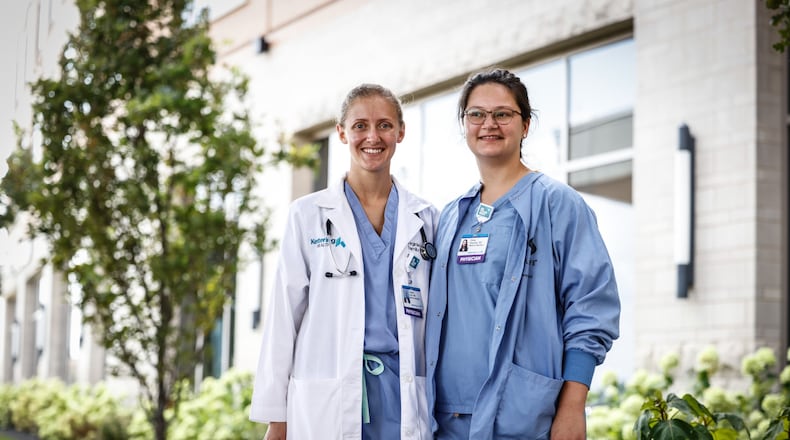Two doctors originally from rural Ohio communities who recently graduated medical school just joined Kettering Health as initial members in the rural medical residency program.
Many rural communities do not have multiple OB-GYN practices or any OB-GYN practices, and the pressure of being on-call at all times for an entire community can deter a new OB-GYN from coming to town. The American College of Obstetricians and Gynecologists reported in 2017 that half of U.S. counties had no OB-GYN.
Family medicine doctors can provide obstetric services, though the percentage of family physicians attending deliveries has decreased steadily for years.
“Providing an opportunity for residents to get that training and feel comfortable with this care when they get out is really important,” Dr. Laura Chambers-Kersh, faculty physician said. “Especially as we are seeing a generation of family medicine doctors that was more trained with this model now retiring, and also seeing OB-GYNs that are practicing in more rural areas also retiring.”
Dr. Haley Rossiter, a first-year resident who grew up in Noble County in rural eastern Ohio, said her sisters-in-law had to travel 40 minutes to see their OB-GYN, which is especially burdensome at the end of pregnancy when patients see the physician every week.
“So, as a family practice physician, if I can alleviate some of that need and burden on expecting moms, then I would love to provide that service,” Rossiter said.
The first part of the grant at the Jamestown clinic is for safe pregnancy care, to improve care when pregnant patients have low frequency yet high risk medical conditions. The team will be doing interdisciplinary drills and training to prepare for these events.
The money will also cover an ultrasound machine for the Jamestown clinic to help with diagnosis of things that can cause pregnancy complications.
The grant will also help pay to increase treatment services for substance use disorders among pregnant patients.
Finally, the money will help pay for services to make the community healthier, because if women are healthy before pregnancy then they are more likely to have a healthy pregnancy. This will include projects like outreach related to nutrition and lifestyle wellness.
Chambers-Kersh said said patients who live in Jamestown or towns even further away from Dayton or Columbus might be driving 45 minutes or more to prenatal appointments, and sometimes even further than that to the hospital where they will deliver.
That can be a significant barrier for patients who already struggle to pay for gas or miss work, she said.
“An extra hour driving can be the difference between being able to go to prenatal visits,” Chambers-Kersh said.
Dr. Virginia Keim, a first-year resident from Holmes County, said she did several rotations in that area where she saw the limited access to care and physicians planning to retire. Keim said she is aiming to go back to practice in that area.
“There’s definitely a need,” Keim said.
About the Author

